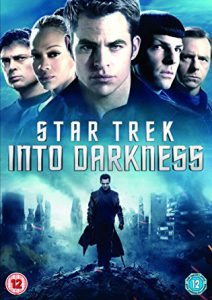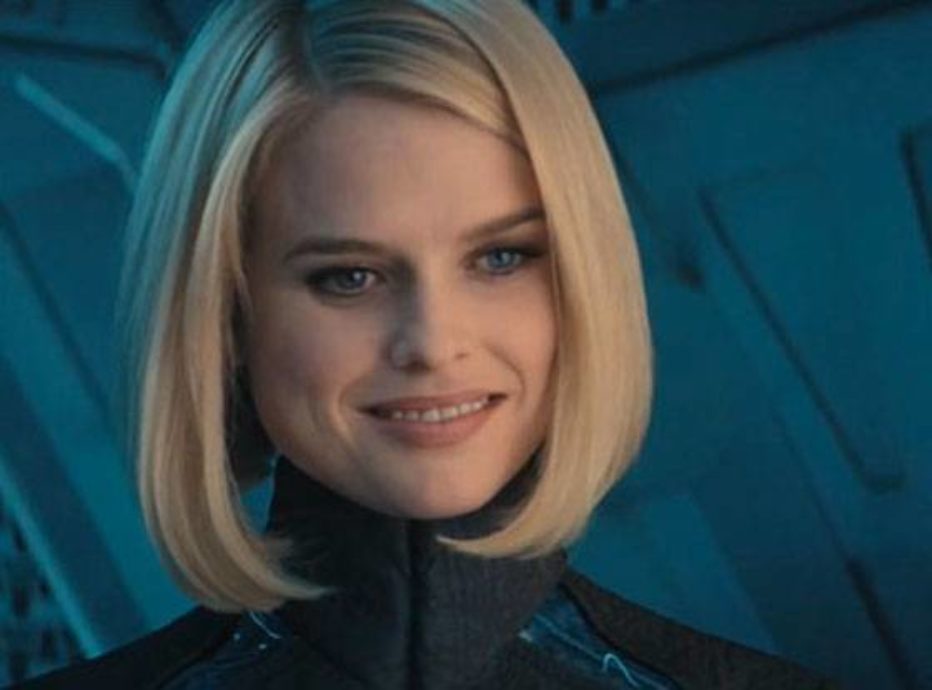Star Trek Into Darkness
When the crew of the Enterprise is called back home, they find an unstoppable force of terror from within their own organisation has detonated the fleet and everything it stands for, leaving our world in a state of crisis. With a personal score to settle, Captain Kirk leads a manhunt to a war-zone world to capture a one man weapon of mass destruction. As our heroes are propelled into an epic chess game of life and death, love will be challenged, friendships will be torn apart, and sacrifices must be made for the only family Kirk has left: his crew.
Star Trek Into Darkness is an interesting mixed bag. It’s almost as though the creative minds involved decided that they wanted to stretch the formula and style a bit further to hammer home the point that the new Trek movies weren’t going to suffer from the safe over-familiarity of the old. This time it’s resulted in a bumpy road loaded with goodies in between a few minor misfires.
 Let’s get the ‘bad’ out of the way first: –
Let’s get the ‘bad’ out of the way first: –
The tone overall is more serious than the last movie. While some viewers won’t mind, others may. It didn’t bother me much, but it was noticeable.
The villain’s identity was impossible to keep under wraps in this day and age of social media leaks, and although I’m not going to spoil it here, knowing it in advance does flavour how you feel about the movie, especially the earlier scenes where we’re not supposed to know much about Cumberbatch’s character.
Several major characters who enlivened the first movie get almost no screen time here. Chekov gets little to do except look panicked, and even Simon Pegg’s Scotty is largely sidelined. The Kirk/Spock banter and spiky friendship gets a fun workout for the first third of the film, but then gets largely forgotten as the chase develops and the tone darkens.
Finally, the plot feels rather like a string of exciting events strung together, rather than a particularly coherently told story.
The Good: –
It opens fantastically, with a brilliant, visually inventive and very entertaining escapade.
Kirk and Spock’s relationship gets to develop and evolve, with a lot of fun moments.
The effects are stunning, including a lot of scenery and ideas I haven’t seen done before.
Cumberbatch is a thrilling and dangerous character, more than able to fascinate the viewer even in a scene with several of the lead characters.
The film also advances the ‘politics’ a little, bringing in a traditional Star Trek species in an important story-line role.
Into Darkness is very much Star Trek’s ‘anti-terrorism’ story and if analysed, many elements tie in discreetly as commentary on how America has reacted post 9/11. However, while ‘darker’ than the previous film, it doesn’t take itself too seriously and does come packed with surprises and thrills, and ties up some story-line elements in very clever ways.
Top-drawer big-budget Hollywood fare at it’s ‘almost’ best, and a film that gives great hopes for the series’ continuing future.
Benminx (Amazon DVD review)
“A good portion of Trekkies (or Trekkers, depending on one’s level of Star Trek obsession) have special affection for episodes of the original TV series that related to Earth and other-Earth cultures visited by the crew of the Enterprise, version 1.0. Some of the shows unfolded in distorted forms of the past, some in the present day of Star Trek’s future reality. Director J.J. Abrams recognised the importance of this relationship in his origin-story reboot of the franchise in 2009, and in Star Trek Into Darkness he has made it an even greater touchstone to the roots of Star Trek creator Gene Roddenberry’s defining philosophy from nearly 50 years ago.
The human home world is key to the plot of this spectacularly bold leap into Star Trek lore, which cleverly continues along the alternate path that was established as separate from the “original” Star Trekuniverse in Abrams’s first whiz-bang crack at advancing the mythology. But it’s not just Earth that is cool and imperiled in this rendering of adventure in the 23rd century; Into Darkness also plays with the original conceit that Earthlings were member to a multi-species United Federation of Planets ruled by a “Prime Directive” of noninterference with other civilisations.
The conflict comes when rogue elements in the Earth-based Starfleet Command hunger to shift focus from peaceful exploration to militarisation, a concept that is anathema to the crew of the Enterprise and her ongoing mission.”
Source: Amazon UK
What others say:
Empire
Common Sense Media
Screen Rant

